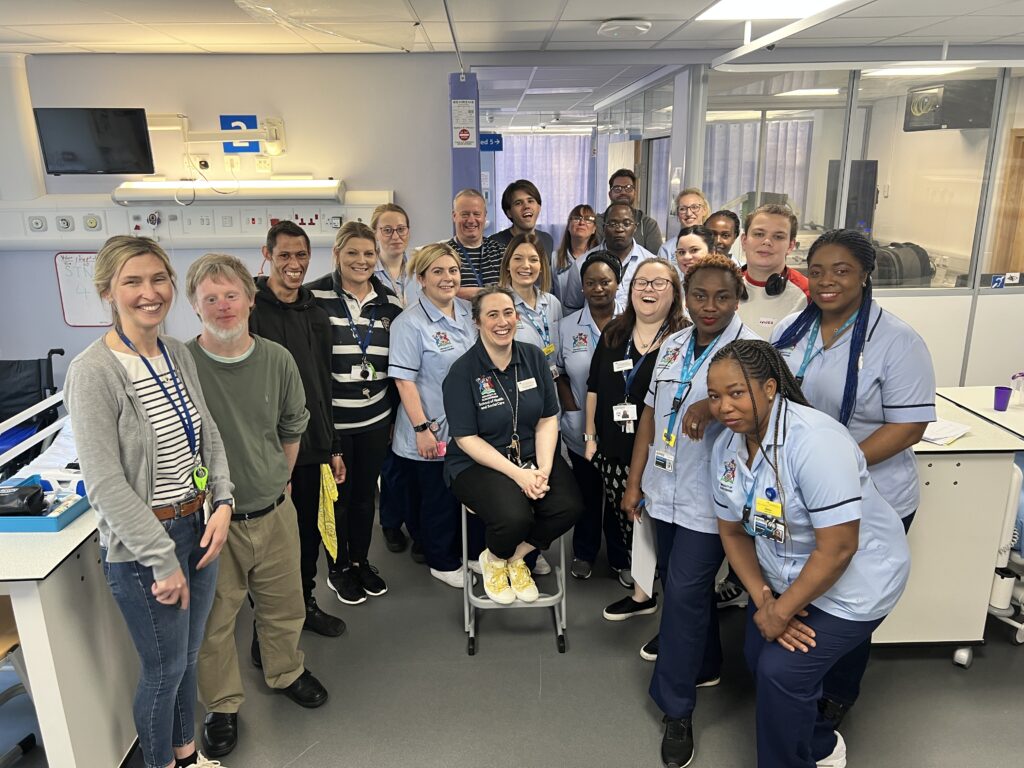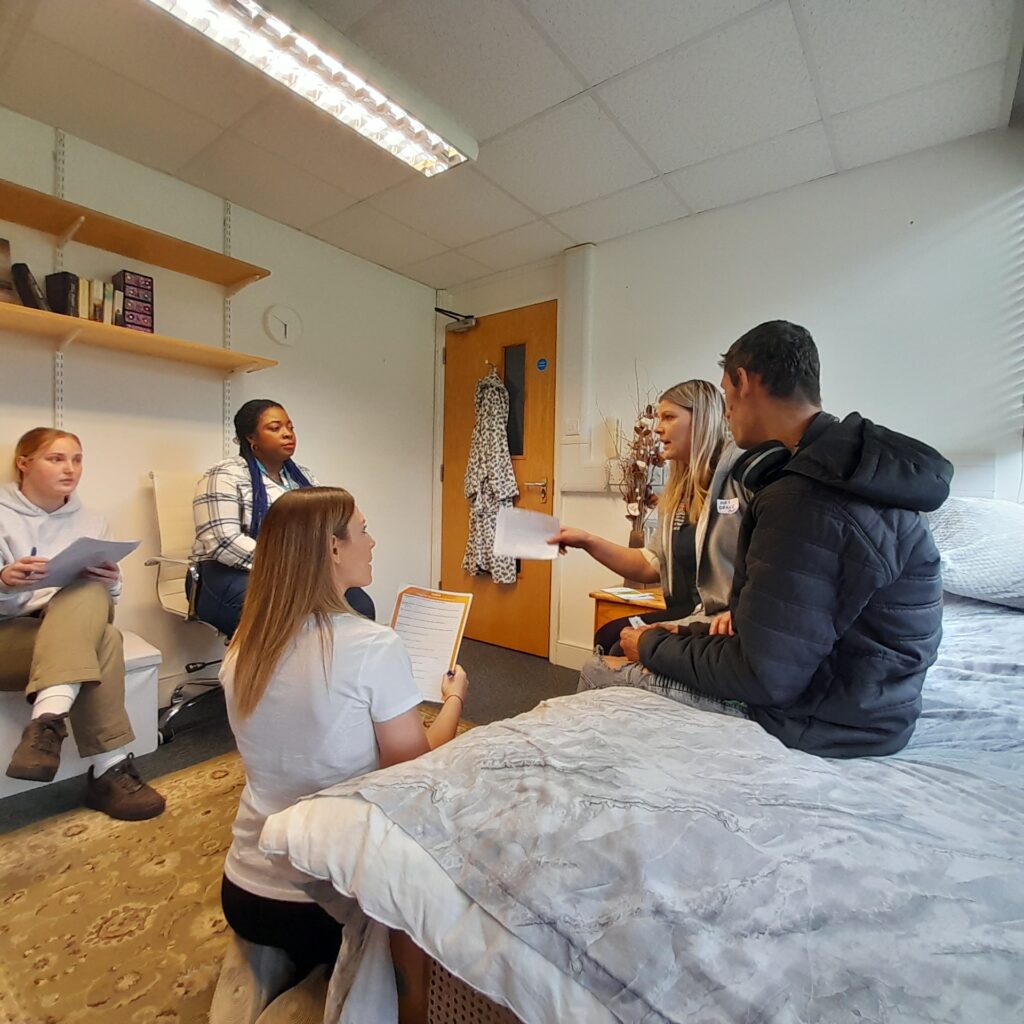Next generation of nursing students join forces with actors with Learning Disabilities
University of Gloucestershire’s School of Health and Social Care has joined forces with actors with Learning Disabilities to provide nursing students with specialist skills and experience to enhance their learning.
Local actors with Learning Disabilities played the roles of people needing emergency hospital care and concerned relatives and friends, in a programme of simulated activities for Learning Disabilities Nursing students at the University’s Oxstalls Campus.
The initiative aimed to enable students on the Learning Disabilities Nursing programme – designed in collaboration with partners including the NHS – to develop their communication, planning, assessing, team working, and clinical skills to support their development as nursing practitioners.

The actors played the roles of patients attending pre-admission meetings and assessment who went on to suffer from deteriorating medical conditions at the University’s simulated hospital ward to challenge the students’ ability to adapt and change their approach working in a dynamic, fluid situation.
The actors were given a short brief about their character but were invited to play their part however they thought best, to bring additional authenticity to the experience, and enable students to increase their ability to deliver good-quality care.

Nick Preddy, Senior Lecturer in Nursing within the School of Health and Social Care, said: “Simulated activities are an excellent way for students to practice their skills and learn together in a realistic environment under a certain amount of stress.
“The direct contact with real people with Learning Disabilities made our simulated activity an authentic and immersive experience for our students that resonates strongly with their nursing practice, and helps them to develop essential Learning Disabilities Nursing skills and values.”
“The students became very immersed in the experience, and were able to take a step back and recognise their own skills, needs and emotional responses to the situations they were involved in, with support from academics in the Learning Disabilities Nursing team.”

; ?>)